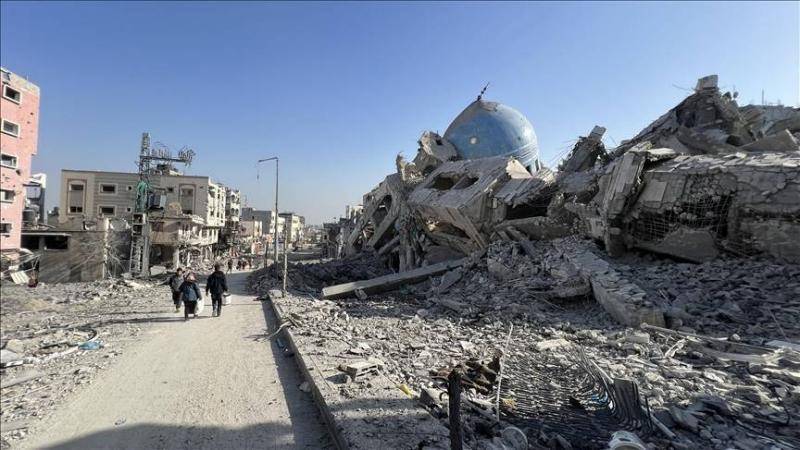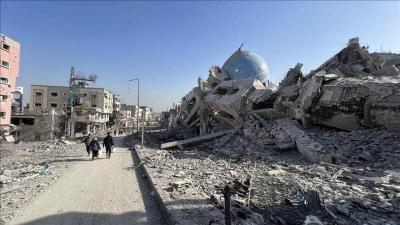At the peak of the sixth month of the war between Israel and "Hamas," the Hebrew newspaper "Yedioth Ahronoth" indicated the emergence of three intertwined realities in the Gaza Strip: narrow areas completely and permanently controlled by Israel, areas under "Hamas" control (especially in the southern part of the Gaza Strip), and "quiet zones" (where the Israeli army has operated and then vacated). The newspaper reported that as a result, "Hamas" strongholds emerged alongside local gangs and armed tribes, primarily in the city of Gaza.
In the report, Michael Milshtein argued that this situation does not allow for the establishment of a "new system," as chaos in the sector has gradually increased, along with civil distress, raising international interest and growing doubts about Israel's ability to create a new reality in Gaza and meet the inhabitants' demands. He noted that this is the main reason for advancing significant campaigns to deliver civil aid, reflecting increasing skepticism towards Israel.
The newspaper stated that this predicament leads to signs of awakening in Israel, meaning that theories proposed regarding the type of system and authority identity "the day after" the war have been abandoned, especially since the end of the war does not seem imminent in light of "Hamas's" continued control over areas and broad segments of the population in Gaza. This awakening was particularly evident during a meeting between National Security Council chief Tzachi Hangbi and Palestinian General Intelligence head Majid Faraj, one of the strong figures in the authority, where the possibility was discussed that the head of the agency could be responsible for receiving and distributing civil aid in Gaza and even enforcing public order in part of the territory.
Additionally, according to the newspaper, there was a crisis last week between the Israeli defense minister and "Likud" party ministers when the former suggested engaging in dialogue with local factions of "Fatah" in Gaza, facing backlash on the grounds that he seeks to involve the Palestinian Authority in "day after" plans.
Milshtein asserted that Israel must understand what is feasible and what is not concerning Gaza. He stated, "First, it is important to comprehend that a new system cannot be created or the military and governmental capabilities of 'Hamas' undermined without actual control over the entire area of the sector. Second, while it is vital to consider the Palestinian Authority's participation in Gaza, it must be acknowledged that it has recently suffered from a deteriorating public image, and there are currently no capacities to enforce order in the area. Instead, it would be better to assist in establishing a Palestinian civil administration based on local powers, led by the Fatah movement, in direct contact with the Authority, while continuing Israeli responsibility at the security level."
He concluded by stating, "Israel faces bad alternatives, and it must choose the least bad. It is true that this will be fraught with problems, but it remains better than battle slogans that lack a temporal dimension in their certain victory."




